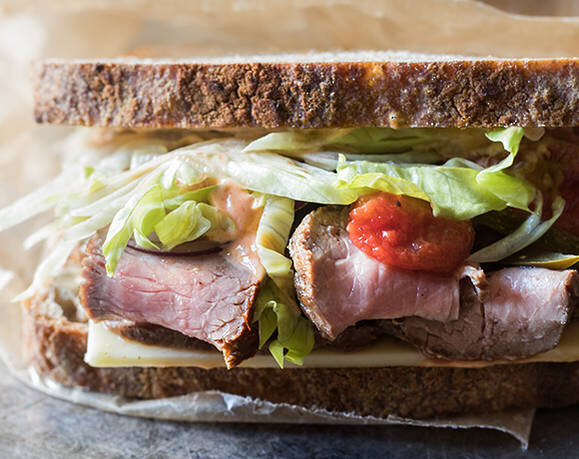HOME > NUTRITION > FACTS & ADVICE > HEALTHY DIETS
Around the world, we find ourselves facing global epidemics of obesity, Type 2 Diabetes and other predominantly diet-related diseases. A healthy, balanced diet plays a vital role in maintaining good health. But what constitutes a good diet? Every day seems to bring a new headline regarding what you should and shouldn’t eat and it can be quite difficult to stay on top of it all. The reality is, human nutrition is a continuously evolving, relatively new science so advice can change over time. That said, here is a list of time-tested advice from registered nutritionists and dietitians.
Moderation
While nutrition advice is constantly evolving, one piece of advice never goes out of fashion: “Eat everything in moderation.” Eating a moderate and varied diet can help with weight loss, weight control and help you stay healthy. While there is no scientific definition to the term, nutrition textbooks define a moderate diet as one that "avoids excessive amounts of calories or any particular food or nutrient." Lean red meat contributes essential nutrients to the New Zealand diet and should be included in moderate portions a few times each week.
Variety
Eating a variety of foods is recommended by the Ministry of Health Eating and Activity Guidelines to meet nutrient adequacy and dietary goals. Since no one food contains the nutrients you need in the portions you need, it's important to eat a variety of foods from many food groups. This approach ensures that you're taking in the nutrients your body needs to stay healthy. These include foods that provide unique benefits required for a healthy balanced diet, we can use the Mediterranean diet as our gold-standard example; plenty of vegetables and fruit, fibre-rich foods, olive oil as the chosen vegetable oil, and a variety of lean beef and lamb, fish, and alternatives.
The role of red meat in a healthy diet
Meat is a key dietary predictor of iron and zinc status in infants, toddlers and women of child-bearing age – two of the most common nutrient deficiencies in the world. Iron-rich foods such as meat are recommended as first foods from about 6 months of age to meet infant's high nutrient requirements. Countries around the world recommend lean meat as part of a healthy, balanced diet because it is a good source of protein, iron, zinc and vitamin B12 and helps to secure nutrient adequacy for most people.
How much meat is recommended?
The New Zealand Ministry of Health recommends eating up to 500 grams a week of cooked red meat (equivalent to 700-750g raw/week), recognising it is a valuable source of essential nutrients including iron, zinc, protein and vitamin B12. This aligns with the World Cancer Research Fund recommendation. Based on serving size recommendations, this equates to up to 3 meals per week containing lean red meat, which includes beef, lamb, pork, game meat and fresh sausages.
Portion size
Also, paying attention to how hungry you are before and after eating a small amount of food can help you gauge how much you should be eating or if you tend to overeat. Keeping a food diary is an old dietitian trick and tends to work better than you can imagine.
Reducing hunger
Protein-rich foods and lower glycemic index (GI) carbohydrates are satisfying foods, as are meals with plenty of vegetables because of their bulk. Beef, lamb, eggs, milk and plain yoghurt are protein-rich foods to include at meal times. Low GI carbohydrate-rich foods include oats (e.g. porridge), pasta, dense-grainy bread, legumes (e.g. chick peas, kidney beans, lentils) and most fruits (e.g. apples, pears, oranges, bananas, stone fruit). A higher protein, low GI diet is more filling and will help to fill you up, so you are less likely to feel hungry.
Animal proteins are a complete protein
Not all proteins are created equal. There are two types of protein, complete and incomplete. A complete protein is a single food source with a full range of our body’s essential building blocks, called amino acids, they are generally an animal-based protein. Incomplete proteins generally come from plant-based protein and don’t contain the full suite of essential amino acids.
Meat’s Calorie Advantage
Meat is incredibly nutrient dense when it comes to protein. Case in point is that to get 25 grams of protein you’d need to eat six tablespoons of peanut butter or four cups of quinoa at approximately four times the amount of calories of an 85 gram piece of lean rump steak. So with red meat you’re getting a lot for a little, with the added benefit of vitamins and minerals such as iron, zinc, selenium and B vitamins that we also gain from red meat. This calorie advantage is important for those with higher protein requirements, such as athletes and our aging population. Complete protein plays a key role in maintaining muscle function and strength and reducing frailty in the older years. An additional bonus is that including protein at each meal increases satiety, i.e. keeping us feeling fuller for longer and assisting with weight loss or maintenance.
Seek advice from a Dietitian or Nutritionist if you need help evaluating your diet.





